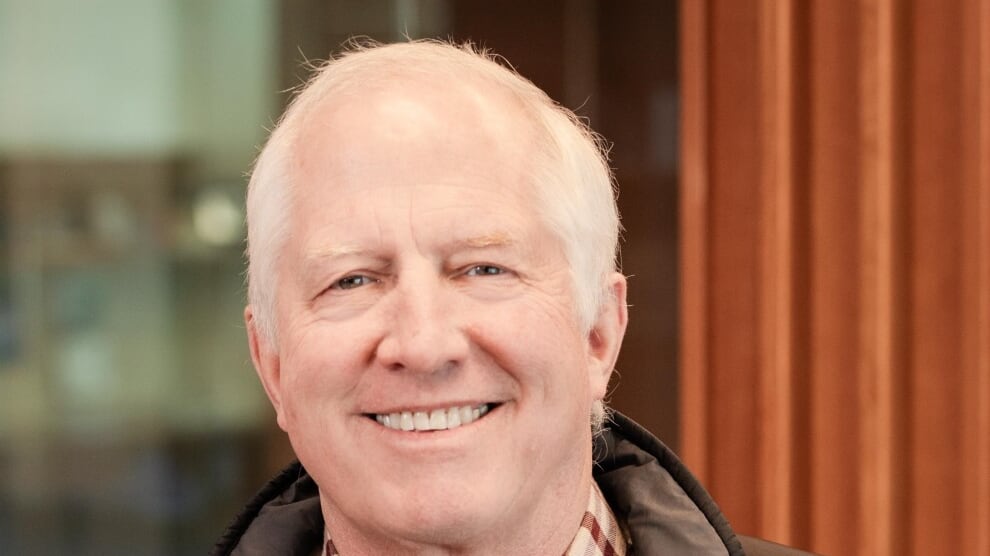This story was produced by the Oregon Journalism Project, a nonprofit newsroom covering the state.
John von Schlegell wants to shake up the way Oregon governance works.
Von Schlegell, 71, co-founded the Portland private equity firm Endeavour Capital in 1991 and remains a managing director there. On Nov. 5, he filed 11 initiatives aimed at the 2026 ballot.
The initiatives, numbers 57 through 67, can be found here in the Oregon secretary of state’s initiative database. The initiatives touch on a wide variety of hot-button issues. (Disclosure: Von Schlegell is a member of the Oregon Journalism Project’s board of directors and a donor to OJP.)
Some of the ideas would mark dramatic changes: Initiative Petition 60, for instance, would impose a 10-year sunset on all new taxes and fees at the state and local levels, and IP 67 would require a two-thirds majority vote to raise taxes through a ballot measure.
Other initiatives offer a different take on issues the Legislature has already acted on recently, such as campaign finance limitations. For instance, Oregon is currently one of a handful of states that has no limits on campaign contributions in state races. Lawmakers passed a complex reform package in 2024. That legislation includes limits scheduled to take effect in 2027, but IP 62 would amend the Oregon Constitution to make state limits equal to federal ones ($3,500 per election for 2025–26). IP 65 would ban corporations and unions from making contributions to candidates. IP 63 would make local taxes and fees deductible from income for state tax purposes. IP 66 would abolish estate taxes, a perennial issue in the Legislature and also the subject of a separate initiative previously filed for 2026.
Other proposed initiatives take on persistent tension points, such as the time it takes to get a state permit (IP 57 would limit the wait to 90 days, although it does not specify the types of permits affected); K–12 schools (IP 58 would require independent performance audits); the process for appointing public defenders, who are in short supply (IP 59 would require judges to appoint attorneys for unrepresented defendants rather than dismissing cases); the process for expanding urban growth boundaries (IP 61 would add more land to promote housing development); and the release of criminal defendants who have been found unable to aid and assist in their own defense because of mental illness (IP 64 would require the state to provide care for such people, rather than release them to the streets as is often the case now).
It’s a little unusual for one petitioner to file so many initiatives at once, although some individuals and groups have done so in the past, in part to see which ideas resonate with the public as well as to see which ballot titles offer the best chance at success. (The Oregon Department of Justice writes ballot titles based on the concept the petitioner submits.)
Von Schlegell, a registered Republican, has contributed to GOP candidates in the past as well as to some Democrats. In the 2022 governor’s race, he gave $25,000 to former state Sen. Betsy Johnson (D-Scappoose), who ran as an unaffiliated candidate, as well as a contribution to GOP nominee Christine Drazan.
All 11 initiative petitions that von Schlegell, who also sits on the boards of Sustainable Northwest, The Willamette Valley Company, Entek International, and Portland Bolt & Manufacturing Company, filed are constitutional amendments, which require 156,231 valid voter signatures to qualify for the ballot.
Although von Schlegell’s name is the only one listed on the initiatives, he has drawn on political consultants, including Kevin Looper, who previously ran numerous ballot measure campaigns for the public employee union–backed nonprofit Our Oregon, to prepare the proposals.
Looper, no longer affiliated with Our Oregon, referred questions to von Schlegell, who responded with a statement.
“I have been working on these concepts with people who share a similar sense that if we get away from ideological extremes, the people of Oregon are actually much more united and solution-oriented than our state politics would suggest,” von Schlegell said. “In the coming weeks, we look forward to talking more about how we can help incubate and develop practical ideas with broad popular appeal.”
Von Schlegell must now gather 1,000 valid signatures for each of the initiatives to trigger the DOJ’s work drafting ballot titles.
OJP subscribes to the standards of editorial independence adopted by the Institute for Nonprofit News, of which we are a member. Visit our Transparency page for more information on our editorial independence and donor transparency policies.

